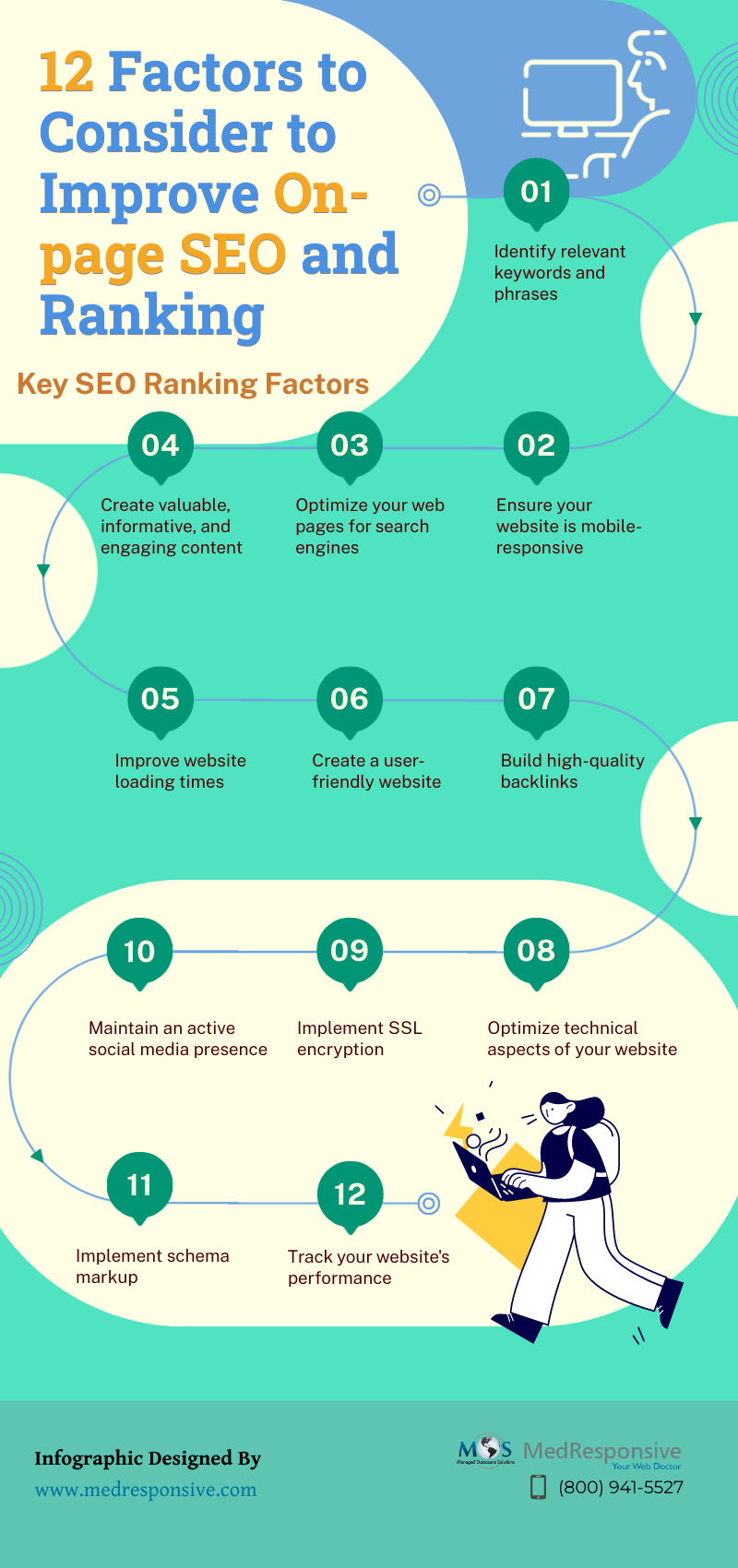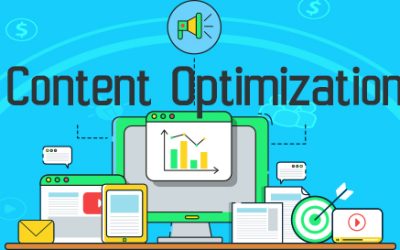Improving your website’s search engine results page (SERP) ranking involves a combination of on-page and off-page SEO strategies. On-page SEO refers to optimizing each page of your website to rank high in search results and thus attract more traffic, reach your target audience and drive better business growth. It involves optimizing headlines, HTML tags, and images and publishing relevant and high-quality content. To ensure proper on-page and off-page optimization, businesses can consider affordable digital marketing services.
Before we get into the details of each ranking factor, let’s take a quick look at the main factors to improve ranking.
Check out the infographic below
Factors to Improve Your Website’s Search Engine Result Page Ranking
Choose the right set of keywords
- Use appropriate keywords in your website URL and title tag
- Use relevant alt text keywords in the images
- Do not target the same keyword across multiple pages
Write/publish unique content
- Content determines how relevant your website is for targeted users
- Make sure that your content is worth reading and sharing
- Focus on main content, authority and performance
On-page Optimization
- Optimize your web pages for search engines by including target keywords in titles, headings, meta tags, and throughout the content
- Ensure a clear and logical structure
Mobile-friendliness
- Ensure your website is mobile-responsive
- Provide a seamless user experience on smartphones and tablets
Page Speed
- Improve website loading times to enhance user experience
- Compress images, leverage browser caching, and optimize code
User Experience (UX)
- Create a user-friendly website with intuitive navigation
- Add clear call-to-action buttons, and a logical site structure
Backlinks
- Internal Linking: Include relevant internal links within your content to guide users to other pages on your website
- External Links: When appropriate, link to authoritative external sources
Technical SEO
- Optimize technical aspects of your website, including XML sitemaps, robots.txt files, and canonical tags
- Fix broken links and ensure proper redirections
HTTPS Security
- Implement SSL encryption (HTTPS) to secure your website
Social Sharing
- Maintain an active social media presence
- Encourage social sharing of your content
Schema Markup
- Use structured data (schema markup) to provide search engines with additional context about your content.
Analytics and Monitoring
- Use tools like Google Analytics to track your website’s performance
- Monitor rankings, traffic, and user behavior to make data-driven improvements
Remember that SEO is an ongoing process, and rankings can fluctuate. Make sure to stay updated about the changing search engine algorithms and how they impact your on-page SEO. Regularly assess your strategies, adapt to algorithm updates, and refine your SEO efforts to maintain and improve your SERP ranking.





